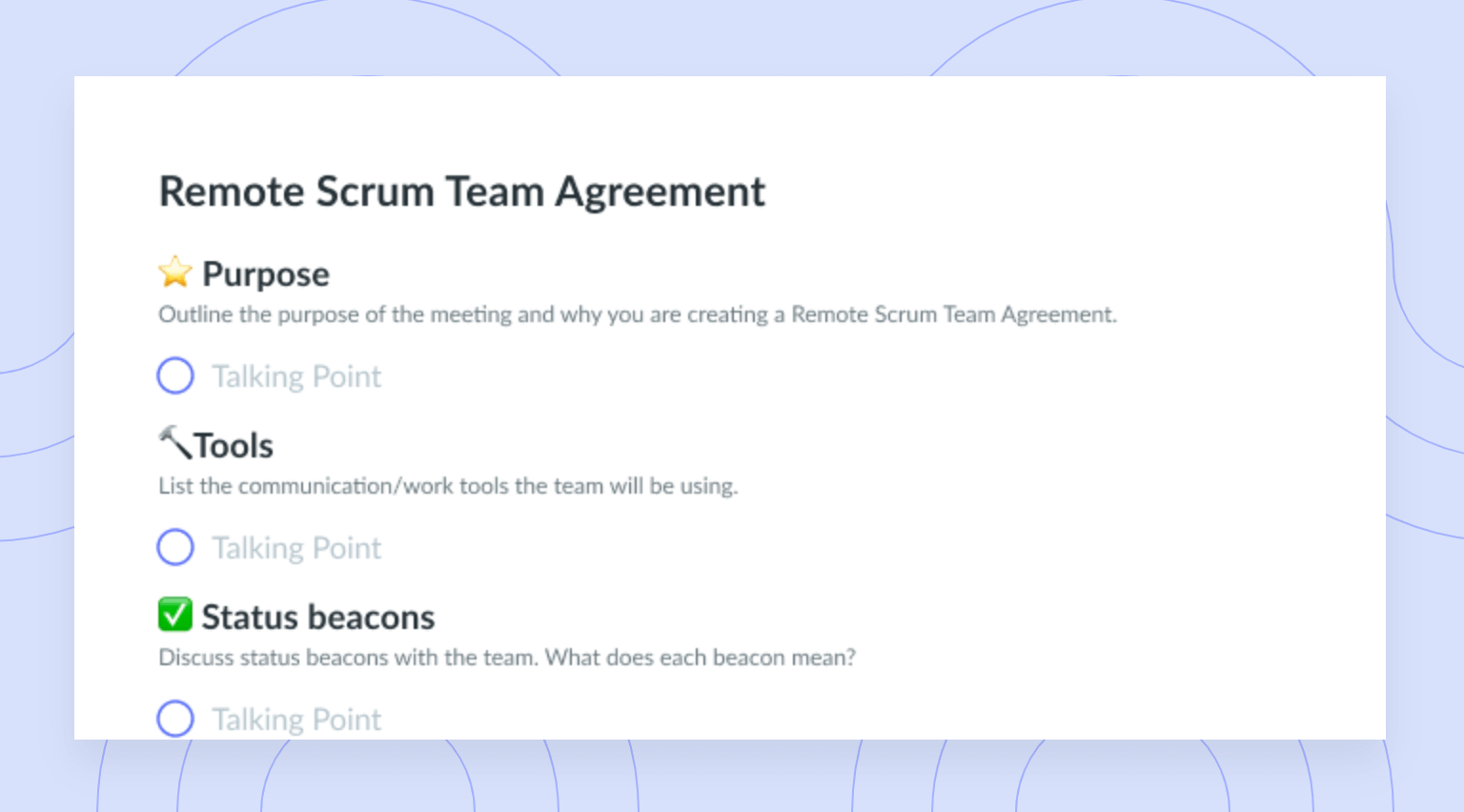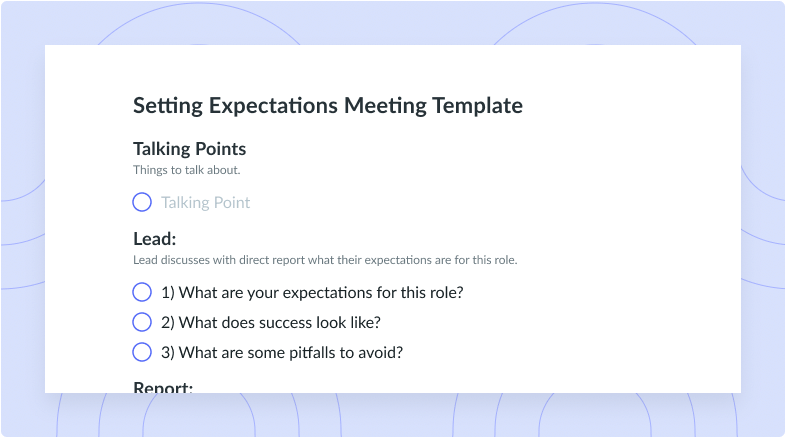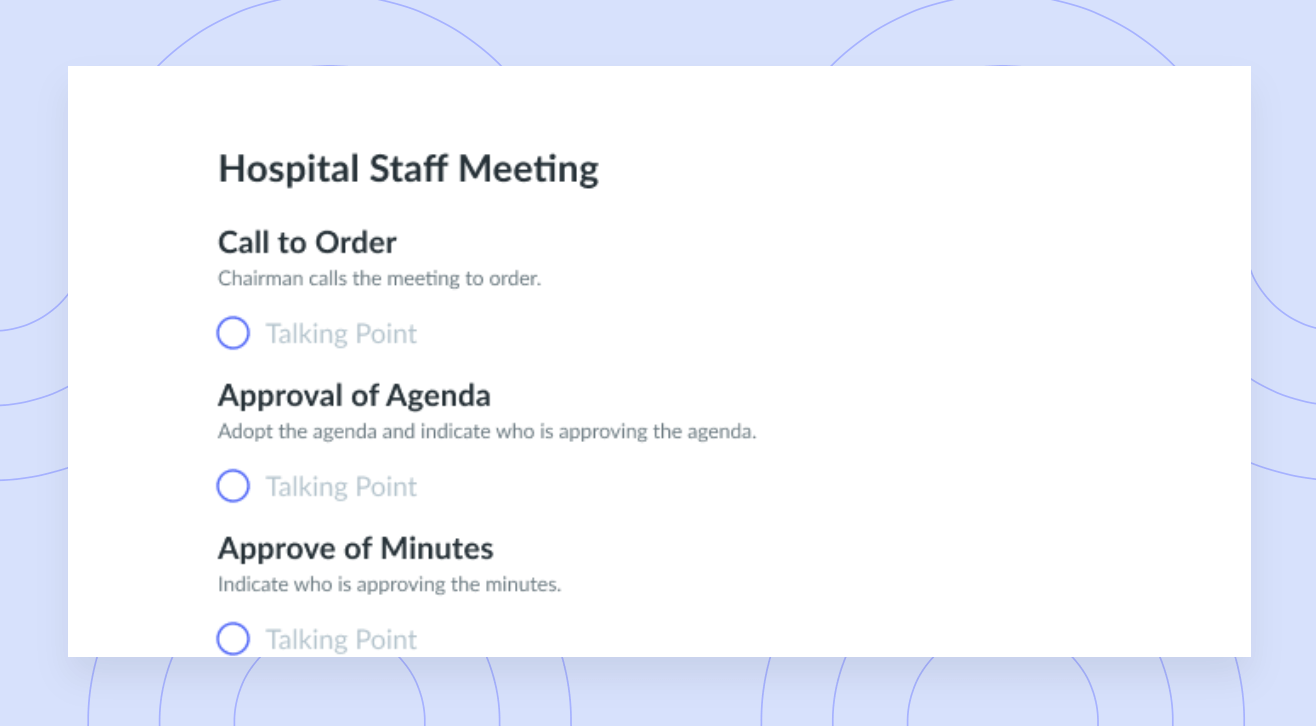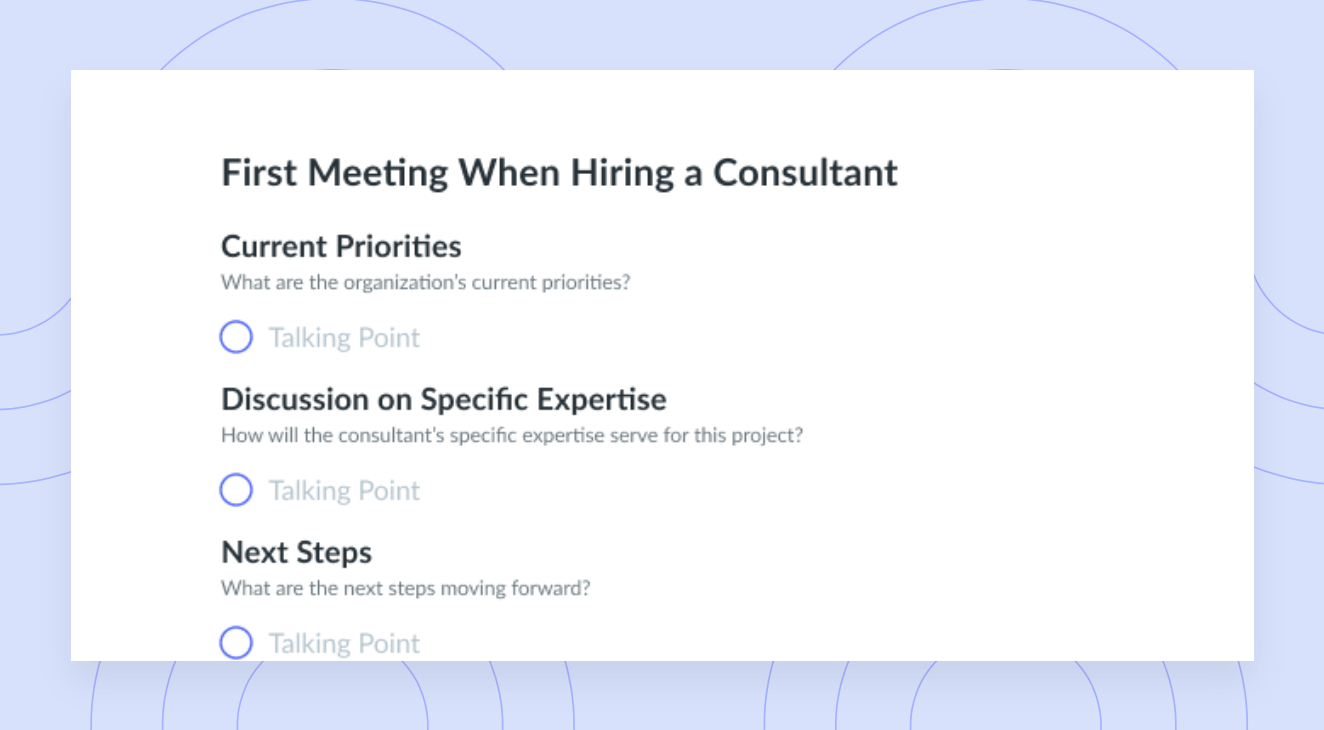10 Scary Leadership & Management Mistakes
Advice from leaders at Shopify, G2, Procurify, Venngage, CreditKarma (and more!) on the most common mistakes you should avoid as a manager.
Management isn’t something that you receive a handbook for. In fact, becoming a manager is often something that you are thrown into and have to learn on the fly. In order to help you avoid some of the most common management mistakes, we asked a panel of experts to share a few spooky management stories…
Here are ten common management mistakes – and some expert tips on how you can avoid them!
- Failing to recognize that everyone has unique strengths
- Being reluctant to delegate tasks and processes
- Being “nice” over being honest
- Not embodying the company values
- Focusing too much on cultural “fit”
- Not having a plan or agenda for your one-on-one meetings
- Not giving actionable suggestions for improvement
- Not recognizing and rewarding team members for their work
- Scheduling meetings without a clear purpose
- Not setting clear goals and deadlines
1 Failing to recognize that everyone has unique strengths and motivations
Do you know what truly motivates each person on your team? One important lesson we learned during our interview with Sara Varni (CMO at Twilio) is that understanding what motivates each employee is critical if you want to drive optimal results across your team.
“What motivates you as an employee might not motivate your team members, and everyone is motivated by different things,” said Sara Varni. “Some people are motivated by titles, some people are motivated by work-life balance, some people are motivated by a ton of money. And I think getting down to what that true motivation is for each employee is really critical.”
It wasn’t a surprise to see this common management mistake being mentioned at our latest #ManagerChats (a monthly Twitter chat for managers and leaders) – where Alice Alysia Ko (Director of Marketing Comms at Procurify) said that one of the most common management mistakes she has experienced is failing to recognize that everyone has unique strengths and work styles.
“A blanket management approach doesn’t work and demotivates people. Figure out who needs more direction and face time, who needs more autonomy,” said Alice Ko.
2 Being reluctant to delegate tasks and processes
Have you every felt hesitant to delegate a project or task because you think that your teammates won’t be able to perform the task like you would? This is a very common management mistake.
As Sara McGuire (Content Marketing Manager at Venngage) mentioned during our chat, a lot of new managers are reluctant to delegate tasks and processes that they had previously been responsible for. According to Sara, this can be a big mistake for a couple of reasons:
- You’ll have less time to do the tasks you had previously owned, meaning that you can become a bottleneck for your team.
- Being a good manager means trusting your team to tackle new challenges, make mistakes, learn, and become better (maybe even better than you).
“Learning to let go of the tasks and projects I used to execute on and trusting my team to handle it is essential for team productivity and morale,” said Sara McGuire. “Not to mention, it makes my job a lot more rewarding because I am able to help my team succeed.”
3 Being “nice” over being honest
Being friendly and approachable are great qualities in a manager – as your team is more likely to do their best work and share feedback with you if you’ve built a candid and trusting relationship. However, a lot of managers struggle with finding a balance between being friendly and being direct.
When we asked our panelists to think about the most common management mistakes they’ve experienced, Ariane Mohamadi (Head of Talent Development at Tradecraft) said that not being honest and direct when giving feedback can harm your team’s performance and result in a lack of trust.
“Management is really about building good relationships. And good relationships are rooted in trust, honesty, and transparency. When those qualities are killed, mistakes get made and things don’t get done,” said Ariane. “Managers are human and want to be liked! And giving tough feedback is hard. But when you don’t know what you’re doing wrong, there is no way for you to improve it. And that ultimately harms not only your performance, but the org’s progress.”
4 Not embodying the company values
One of your main responsibilities as a manager is to hold your team accountable to embody the company values. As Sara McGuire argued, culture starts at the top, and management plays an important role in improving and exemplifying the company values, mission, and culture.
Research by Gallup suggests that creating a positive culture can lead to 33% higher revenue. That’s why, leaders like Gustavo Guiomar (Head of Product at Luxclusif) say that managers have the power to influence positive culture in their organizations and ensure that everyone on the team is in tune with the company mission and purpose.
“Ensuring company values are actually lived by you and your team is critical. You need to be in tune with the purpose of the company,” said Gustavo Guiomar. “Managers need to be value and culture ambassadors. 1:1 is a great way to promote alignment.”
5 Focusing too much on cultural “fit”
Hurrying recruitment or filling a vacant role because the person fits the “team’s culture” is one of the most common management mistakes.
According to Ash Coleman (Head of Diversity and Inclusion at CreditKarma), by focusing too much on the “fit”, all you’re really doing is minimizing the possibilities of those with different backgrounds. In order to prevent this mistake, Ash advices sticking to values, rather than cultural fit:
“When building diverse teams, managers need to focus on sponsoring diversity and blooming their team to acknowledge and respect diverse talent,” said Ash Coleman.
Alexandra Sunderland (Engineering Manager at Fellow.app) suggests a practical way to fix the common mistake of hiring for “cultural fit”: Instead of having just one person interview the candidate, ask a diverse group of people to meet with that person.
“Not having a diverse interview panel when hiring goes with the Halloween theme,” said Alexandra. “It’s so important both to have a variety in opinions on a candidate, and to make them feel like they’d belong on the team.”
6 Not having a plan or agenda for your one-on-one meetings
One-on-one meetings help managers build trust with their direct reports. They are a dedicated space to coach employees on their priorities, exchange feedback, and remove roadblocks.
There are many mistakes you can make during your one-on-one meetings, but one of the most common errors is not having a plan for what to talk about. Erika Strong (Brand Marketing Lead at Shopify) said that not having a clear agenda for your one-on-one meetings can make those weekly meetings a waste of time for you and your direct report.
“Preparing topics for discussion in advance can give everyone a heads up on sensitive topics, as well as guide the conversation more efficiently,” said Erika Strong. “Push your team to add items to the agenda!”
On the topic of one-on-one meetings, Moly Milosovic (Senior Manager, Community at Jobber) said that it’s very important to intentionally make these meetings a positive and personal space, and not just a space for tactic chats, challenges, and setbacks.
“I ask my team to prep small wins, challenges, and an answer to a reflection question,” said Moly Milosovic.
If you’re looking for a one-on-one meeting template, Alice Ko shared a list detailing her approach for one-on-ones:
- Start with a Rose & Thorn
- Record notes using Fellow.app to track how they are feeling and identify patterns
- Encourage the use of company resources for mental health
- Ask about challenges/blockers
- Take things off their plate

Never forget what was discussed
Show your direct reports that you care by remembering what they said during past meetings. With Fellow, you can see a history of every 1-on-1 conversation you’ve had and ensure that you’re staying focused on important decisions and action items.

7 Not giving actionable suggestions for improvement
Waiting for performance reviews or yearly evaluations to provide feedback to your teammates can a big mistake. To avoid this mistake, you can learn how to give and receive feedback from your team and make feedback a habit, instead of an event that takes place only once a year.
“Provide feedback regularly, weekly if possible,” said Gustavo Guiomar. “State what worked well and what didn’t.”
According to Ashley Porciuncula, Fractional Chief Product Officer, the word “feedback” gets a negative reputation, precisely because it’s such a common management and leadership mistake to wait until there is a big problem to share constructive feedback with your teammates.
In order to build a culture of feedback, Ashley suggests letting your team know that you want to be the best manager you can be, and that you are open and accepting of feedback as well.
“People want authentic feedback, good and bad,” said Ashley Porciuncula. “You can be candid about room for improvement if you’ve built a relationship where your employee knows that they’re doing a good job on a daily basis.”
8 Not recognizing and rewarding team members for their work
Showing appreciation for your team’s work is an essential way of keeping employees engaged and motivated.
According to Gregory Bailey (President and CPO at Denim Social), recognizing and rewarding your team’s work is even more important now that most people are working remotely. In order to increase employee productivity, Gregory recommends finding creative ways to reward team members for their work.
Here are a few ideas that have worked well for Gregory’s team:
- Host a weekly “zoom coffee” – Every person says one (or more) positive things about co-workers as a way of showing appreciation for each other’s work.
- Host a monthly all-hands and reward specific team member performances.
- Mail handwritten notecards.
Rebecca Reynoso (Guest Post Program Manager and Lead Editor at G2, recommends listing your direct report’s achievements and successes as a way to motivate them. In her experience, this can encourage people to push themselves to continue growing and developing new skills in their areas of expertise.
“High performers rarely get recognition they deserve. It’s assumed they’re doing well, so no recognition is given,” said Rebecca Reynoso. “Managers often use praise as a motivational tactic for more mid-level performers. But high performers need love too!”
9 Scheduling meetings without a clear purpose
Over the past few weeks, Zoom Fatigue has become more and more common amongst remote employees. In fact, research shows that video calls can be more draining than in-person meetings, as they force us to focus more intently.
According to our panelists, most managers are still scheduling meetings without a clear purpose, which can result in a waste of time for everyone involved.
If you’d like to build a culture where every meeting has a clear agenda and action items, Erin Blaskie will walk you through 5 key steps to make your meetings more productive in this video:
10 Not setting clear goals and deadlines
Last but not least, one of the most common mistakes managers make is not defining clear goals and deadlines for their team. As Erika Strong argued during our chat, not setting goals at all can be harmful in the long-term. In order to avoid this, her team (at Shopify) has made it a habit to set goals every 3-6 months to provide direction.
Similarly, Gustavo Guiomar (from Luxclusif) said that not setting ambitious goals with timelines is a common mistake he has experienced and seen other managers make. According to him, you can use an OKR framework to align priorities and “build a network of cascades”.
Finally, Sara McGuire said that one of the best things you can do if you’re setting goals with your teammates is helping them understand how each of their individual projects is connected to the bigger goal:
“A mistake I have made when setting goals in the past was to not communicate with enough clarity how individual projects tie back to the goals,” said Sara McGuire. “Every member of your team should feel that what they’re working on has a purpose, even the more granular tasks.”
The truth is, great managers are made, not born – and transitioning into a management or leadership role will inevitably result in a couple of hard-earned lessons and mistakes.
As Jean-Michel Lemieux (CTO at Shopify) said on the Supermanagers podcast:
“None of us were actually naturally born leaders. There’s work, homework, assignments, and screw-ups to be done. But it’s really rewarding.”
If you think you’ve made some of these mistakes in the past, don’t worry – you’re not alone. Remember the most important part is to learn and grow from them.
Thanks for taking the time to give this a read and don’t forget to share with a friend or a colleague who could benefit! 👋
Finally, don’t forget to join us at our next #ManagerChats – a monthly twitter chat where we discuss important topics for managers and leaders.




























